Take a moment to think about who you consider your friends to be. I'm not talking about who you're connected to on social media or the folks that you're cool with and speak to every once in a while. I'm referring to the individuals who you tell your deepest secrets to, the ones who will not only loan but will give you fifty bucks when times are tight. The people who will sit up on the phone with you through a break-up, have encouraged you every time you've taken a calculated risk and affirms you every chance they get. Who are those folks?
It has taken me years—decades, really—to figure out who my true friends are. Do you know what the bump-and-bruises of discovery have taught me? A good friend is one of God's greatest gifts and a bad "friend"? They are about the most destructive and disappointing thing that can ever happen to a human being.
Related: My Female Friendships Were The Most Heartbreaking & Loving Relationships Of My Twenties
Know what else I learned? A lot of us could be spared the drama of faux friends if we set standards of expectation before we give someone the privilege of the title. And while the list I'm about to share isn't a concrete definitive one, let's just say that since I made sure these things checked off in my own world, my friendship circle has been a lot healthier and the drama has been sooooo much less. FINALLY.
1.Loyalty
 Giphy
GiphyWhen a lot of us think about the word "loyal", we tend to think about someone who will have our back no matter what. That's a part of it but what a person who's loyal to the core will also do is be faithful and committed to you, no matter what. No matter what they hear about you. No matter how inconvenient it might be at times. Through good times and bad, what they said they'd be to you and do for you, nothing can make them waiver because they aren't loyal based on emotion; they are loyal based on their character.
Loyalty is invaluable and extremely rare. If you even have two loyal people in your life, consider yourself mighty blessed.
2.Honesty
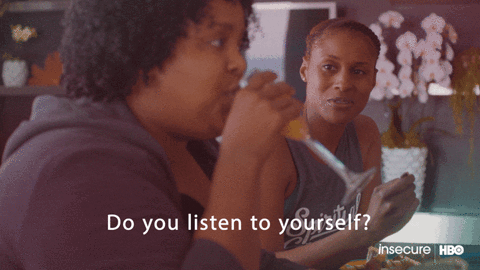
I say it often because I believe it to be true. A lot of people don't want friends. No, what they desire are fans. I say that because the moment many people are called to the carpet on their issues, drama or character flaws, suddenly they want to "cancel" whoever said it. But a truly honest person is gonna be both sincere and frank. They won't do it just to have something to say. They'll do it because they love you, they see you and they want to see you win. If that's calling you out on your ish sometimes, so be it.
3.Protectiveness
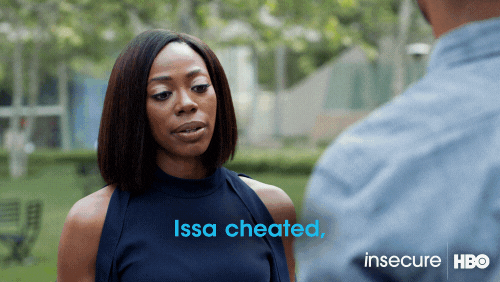
Grandma used to say, "If they'll gossip to you, they'll gossip about you." If you live long enough, you'll learn that there is certainly some truth to that. But what life has taught me to pay more attention to is "If they let other people talk about you, whether in or out of your presence, they don't have your back the way you think they do." There is someone I know who is cool on so many levels, but I still don't fully trust him because I've personally witnessed people say shady stuff about his "boys" and him play the neutral card.
Friends who are protective are friends who will defend you, both in and out of your presence. They let people know that when it comes to you, they will not tolerate any shady talk, slick implications or attacks on your being. If you've got some protective friends, treat 'em to dinner soon. They deserve it.
4.Support
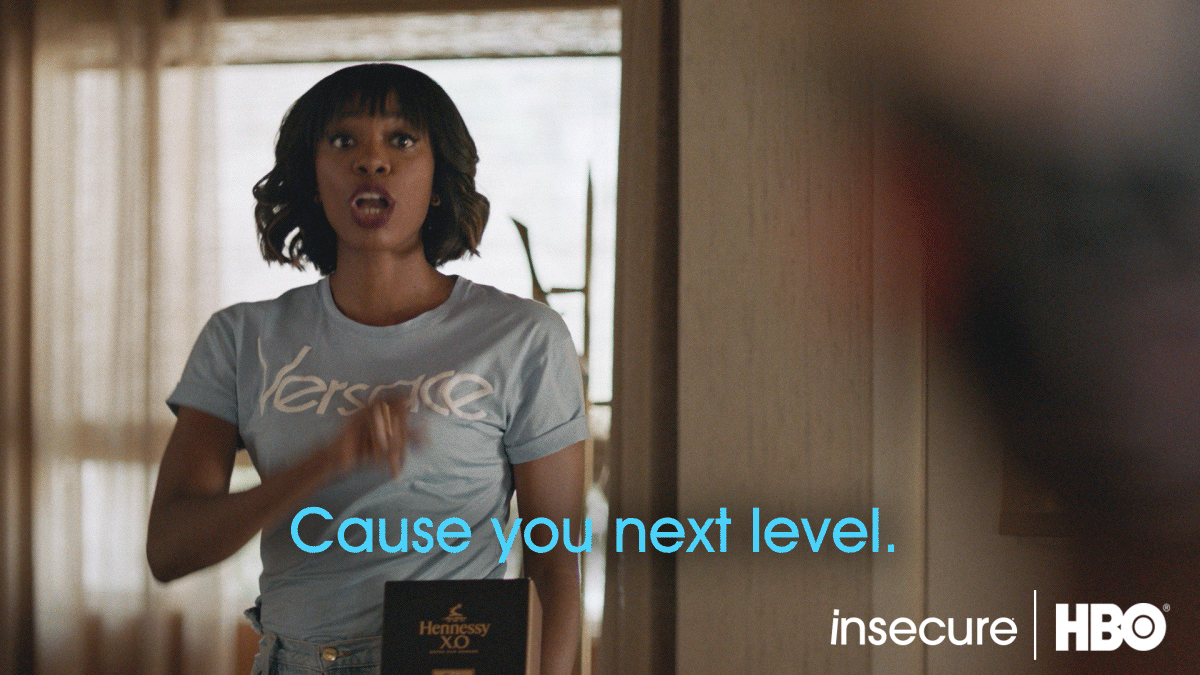
A while back, I penned an article for the site about how to know if one or more of your friends are actually envious of you. While that might seem like a bit of an oxymoron, being that I grew up in the entertainment industry (and later went on to write in the same industry for a while), you'd be amazed how many people who claim to be friends are nothing more than competitors.
"Healthy competition" is cool every once in a while. But you know what's so much better? People who are thrilled for your achievements. People who applaud your reached plans and goals. People who don't act threatened by your glow up. People who sincerely mean it when they say, "Call me if you need anything," or "I got you." People who will hold you up, both in good times and in bad. People who are a great place to go to and will provide a soft place to land. And yes, you should unequivocally expect this from your friendships.
5.Compassion
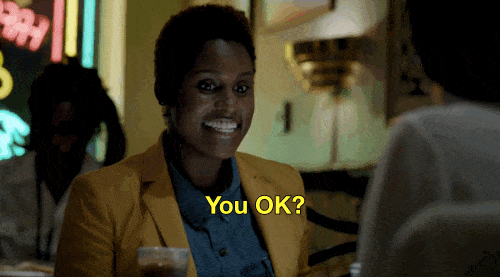
Compassion is one of the words where you really have to put your money—and by "money" what I really mean is character—where your mouth is. What I mean by that is it really doesn't matter how compassionate you say or think that you are, unless you are literally looking at people who are having a hard time and then doing what you can to make life easier for them, you're probably not as compassionate as you think.
When it comes to the friendships that I have now, it's close to impossible for us to keep tabs on who did what or when (or most) because we're wired to help each other out—period. If you don't have people who are mentally and emotionally set to be on the "I got you" tip (as you are willing to be the same way towards then), get you some new friends. Stat.
6.Good Communication
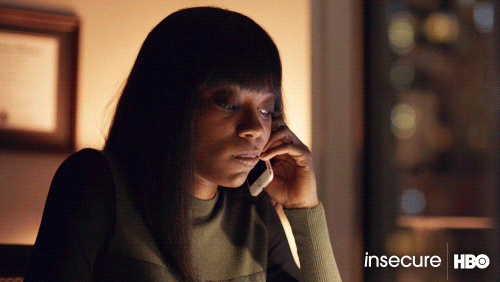
It's hard to connect, let alone grow, with anyone who has poor communication skills. The sad thing is, a lot of people think they are great communicators when they are anything but. Good communicators listen (this includes listening without interrupting). Good communicators ask questions so that they are able to get clarity. Good communicators take body language cues and operate from a place of self-awareness and emotional intelligence. Good communicators prefer dialogues over monologues (some of y'all will catch that later). Good communicators are present and in the moment with whomever they're interacting with.
Which of your friends communicate like this? More importantly, can you honestly say that you communicate this way with them?
7.Respect
 Giphy
GiphyI have a pretty strong personality. So do most of my friends, both male and female. I'll admit that if there's anything on this list that I had to practice growing in, it's respect. Respect that it's OK to have different views on things. Respect that I may not always get or like what they say or do but that doesn't mean we can't still be click-tight. Respect that they need to be celebrated for their individuality just like I do.
When someone respects you, they esteem you.
They also appreciate you, take your thoughts and feelings into consideration and treat you with the utmost dignity; they make you feel valuable to them. Everyone won't agree with me, but the reason why I choose to put respect on this list rather than love is because, to me, respect is one of the greatest displays of love. Especially when it's coming from a friend.
8.Availability
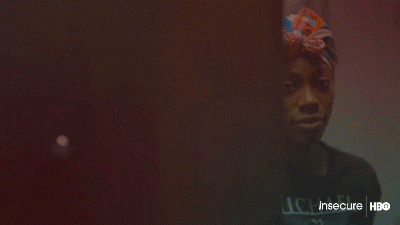
Back when I didn't really know what true friendship looked or lived like, I used to have the bad habit of picking people I was always available for who weren't for me. Literally too. If they needed some money, I picked up the phone. But if I needed some help with a deadline, I constantly had to leave a message after the beep. If they were having family issues, I would miss a night of rest listening to them vent. If a man broke my heart, they would tolerate the conversation…until another call came through.
A good friend? They know that it's not about having time but making time. A bad friend (which isn't a friend at all) only makes time when it's convenient for them. That's largely in part due to my next point.
9.Selflessness
 Giphy
GiphySelfish people. They really are the absolute worst, ain't they? How could they not be when they are so consumed with themselves that no one else really matters. Just in case you've been dealing with selfish individuals for so long that you don't even recognize it anymore, I'll share of few clear signs of what one looks like.
A selfish person has no problem taking but is always hemming and hawing about giving. A selfish person doesn't really do things for others unless they can directly pinpoint what they'll get out of it. A selfish person will totally dismiss your needs, just because they are in a bad mood or they feel what they've got going on is more pressing. A selfish person is so arrogant that they would rather lose you than admit when they're wrong and try and make things right. A selfish person tends to act entitled, manipulative and controlling because, again, they are self-absorbed.
It's kind of amazing that selfish folks are able to maintain any kind of relationship, being that a foundational truth about having one is you have to be willing to compromise and give of yourself. Not just when it's easy or convenient; when it is necessary.
10.A Safe Place
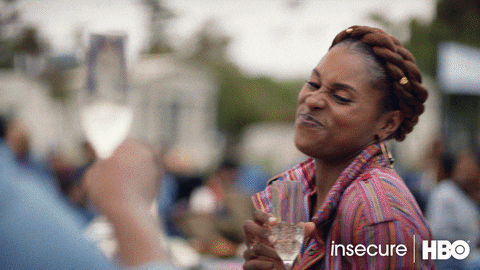
Every chance I get, I mention a book that has been a true lifesaver for me. It's called Safe People: How to Find Relationships That Are Good for You and Avoid Those That Aren't (Cloud/Townsend). If there's one thing that I think is far too underestimated, it's the importance of feeling safe in your relationships whether it's with your family, your friends or your significant other. Safety consists of being "free from hurt, injury, danger, or risk" and "involving little or no risk of mishap, error, etc.".
You know what this all means, right? Just because you've known someone for a long time, that doesn't mean they are a safe place. Just because you have a lot in common with them, that doesn't make them a safe place. Just because they used to be safe doesn't mean they currently are a safe place (which is why annual relationship evaluations are so important).
Life is risky enough without finding out the hard way that your friends weren't a place of comfort, refuge and healing for you. Not only should you expect them to be a safe place in your life, you deserve it and everything else that I mentioned on this list. Full stop.
Want more stories like this? Check out these xoNecole related reads:
The 5 Must-Have Friends Everyone Needs
The Truth About Maintaining Friendships As An Adult
Friends That Believe In You Aren't Necessary But They Feel So Damn Good
The Real Reason You Can't Be Happy For Her
Featured image by Getty Images
- Reasons To Let Go Of Expired Friendships - xoNecole ›
- Why Talking About Your Friends Behind Their Back Is Normal ... ›
- How To Maintain Your Mental Health & Sustain Healthy Friendships At The Same Time - xoNecole: Women's Interest, Love, Wellness, Beauty ›
- Signs You're In A Codependent Friendship - xoNecole: Women's Interest, Love, Wellness, Beauty ›
- It’s OK To Outgrow Your Friendships, Losing Friends Is Not Always Bad - xoNecole: Women's Interest, Love, Wellness, Beauty ›
- How I'm Handling The Loss Of Friendship This Season - xoNecole: Women's Interest, Love, Wellness, Beauty ›
- How To Still Be A Good Friend...When You're Totally Tapped Out - xoNecole: Women's Interest, Love, Wellness, Beauty ›
- 5 Kinds Of Friends You Need. 3 Kinds Of Friends You Don't. - xoNecole: Lifestyle, Culture, Love, Wellness ›
- Joyful Connections: The Secret to Strong Adult Friendships - xoNecole ›
- Healthy Friendships Are Built Upon Healthy Expectations | HuffPost ... ›
- What makes a good friend? | Friendships | ReachOut Australia ›
- What Are Your Friendship Expectations ›
- 20 Things True Friends Don't Do - Signs of an Unhealthy Friendship ›
- 6 Ways to Decide if Your Friend is a True Friend — Purpose Fairy ›



























